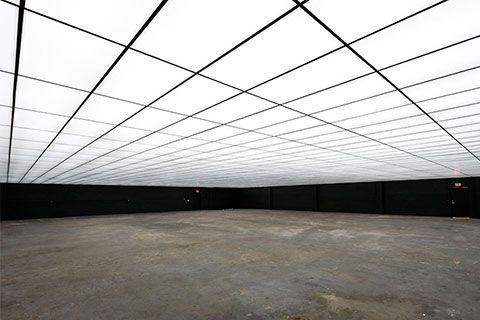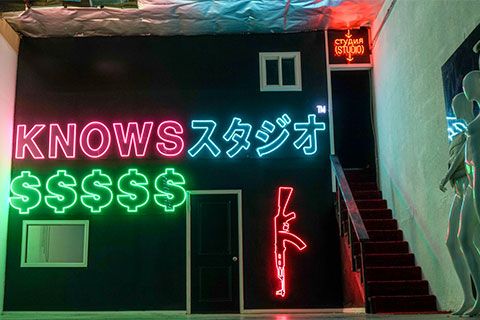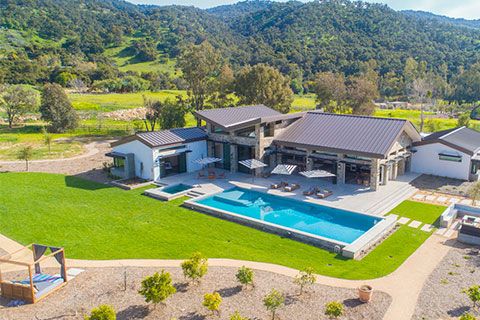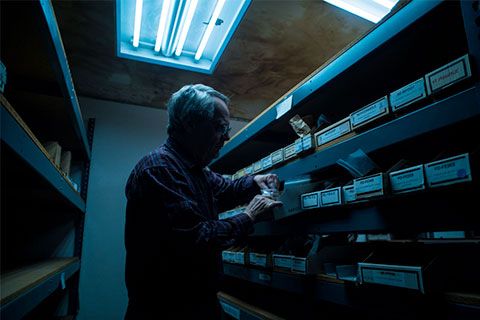Insider Interviews: Creating Your Own Commercial Production Company
Giggster’s Insider Interview series allows us to sit down with members of our production community to talk about their career path and what makes them successful at what they do.
In this week’s article, we had a chance to interview Greg Bassenian who is the founder and creative director of Aris Productions.
Reagan Cook: Greg, thanks for taking the time to chat. I’d love to learn more about your background – what brought you to Los Angeles, and how did you get involved in your current role?
Greg Bassenian: Thanks, happy to chat. I came out to LA my senior year of college. I went to Boston University, and their film school had a semester abroad program in LA for film majors. I took the opportunity to come out and I’ve been here ever since. I went back to grad school at USC in 2013, and as I was graduating with my MFA, one of my professors reached out to see if I would be interested in producing branded content for his company. So, I was very fortunate to sort of exit school with a small foot in the door and then have just been producing and directing things from there.
Rent a location for your next film or photo shoot project on Giggster – A better way to book locations.






RC: That’s similar to me. I came to Los Angeles to do my Masters at USC in 2012 – I guess we were there at the same time. So Greg, where do you work and what does your typical workday look like?
GB: I’m the founder and creative director of Aris Productions. We just moved into our own offices which is really exciting! We’re in downtown in the Fashion District. My job is actually about 8 jobs right now. I sort of have to multitask between doing client management, copywriting, creative direction, actually directing commercials on set, as well as doing editing and supervising of post, so I sort of having to wear a lot of hats by nature. My typical workday jumps between editing a project, writing a new project, overseeing new business development as well as managing operations. As you can tell, we’re small, but growing, so there’s a lot to do.
RC: That’s really exciting. I think knowing how to do a little bit of everything is definitely emblematic of the next generation of filmmakers who are more entrepreneurial and more tech-savvy. You already touched on this a bit but how would you say you’ve established yourself in the production industry? What are some things that help differentiate yourself from others in your field?
GB: I don’t know if we’re established! Haha. I hope we are. Or will be. But our goal is to really just make sure we create and produce really great and effective commercial content for our clients. I started independently and just really tried to focus on delivering great work for clients, and fortunately, it has just grown from there. I think one of the things that differentiate us the most is that we have a creative side to us. We do a lot of straight production jobs, but more and more, we get asked to put on our creative hats for our clients, and that’s great. We love that part. That, and our affordable pricing. We can deliver great content at a fraction of the price of other agencies and production companies, so I think that helps a lot too.
RC: What would you say are the aspects you enjoy the most and least about your job?
GB: I love writing. It’s my background and training. I was a TV writer, so anything creative is my favorite part. Breaking out ideas for clients is always a ton of fun and really rewarding. As far as the thing I like the least… well, I still produce, but I would say that is the least fun aspect of my job. I don’t like to be negative, but, I wouldn’t be mad if I didn’t have to produce any more.
RC: What advice would you give someone who wants to follow your career path?
GB: The advice I would give is to just focus on your craft and not get sidelined by other things. There seems to be a lot of distractions in the entertainment and film production industry, and really, at the end of the day, the work you do is what will get you to where you want to be, so focus on that. Don’t worry about what other people are doing or who is getting a deal where. Keep your head down, work hard, and you’ll be able to do the things you want to do.
RC: How do you usually find a location for your shoots? What are the things you look for in a property?
GB:Well, Giggster has been a huge resource. Honestly, it’s become our go-to for any location needs really. It’s easy to use and has such a great selection. We pretty much use it exclusively at this point. It’s been amazing. As far as creative, we look for locations that really have a great interior design and polish to them. Much of what we look for is a certain interior aesthetic with our shoots, especially our commercial shoots. So, any location with a well-designed interior is great, and if the exterior also is strong, then it’s a huge bonus as well. My student films were shot on 16mm black and white film. It used to cost hundreds of dollars, and I had to ship my film out of state to have it processes and digitized. Now, that’s a laughable thought.
RC: That’s really awesome to hear. Glad to know we’re making things a little bit easier on the location’s front. My final question is about the production industry here in LA. From your personal experience, how has it changed and where do you see it going in the future?
GB:The industry has changed dramatically since I started in 2006. Back then, everything was still shot on film. And, while this sounds crazy, the only place you could see video content was on a TV or in a movie theater. You could try to find video online, but YouTube wasn’t really even a thing yet. To give you a sense of cost, my student films were shot on 16mm black and white film. It used to cost hundreds of dollars, and I had to ship my film out of state to have it processes and digitized. Now, that’s a laughable thought.
But here we are 12 years later, and we’re shooting on Alexa minis into ProRes, taking the footage and dumping it onto a computer on set and cutting in front of the client while we’re still shooting. It’s really insane. So, things have changed dramatically. It’s a good thing but also challenging since you have to make your content so much better for it to stand out in today’s world where literally everyone has a camera on their phone and the ability to generate video on the fly.
I can’t imagine how it’s gonna change in the next ten years, but some things that look likely are the continued rise of streaming content on Hulu and Netflix, etc. That’s really changed the game in terms of quality and delivery. It seems like Instagram and YouTube will mature as platforms, and really, the power is gonna shift from the TV Networks into the hands of the corporations that choose to build out their media brands. The Amazon’s, Apple’s. Etc. It used to be that advertising was used to pay for the content you watched on TV, but, with these new brands, their content is their advertising, so, it also opens up the ability to be more creatively diverse since drawing a huge audience isn’t as important anymore if you don’t need the ad dollars to support it.
So, it’s all exciting and we’re looking forward to it. We’re always looking for new creative ways to help our clients and see how we can develop new creative ideas for them on different platforms.

